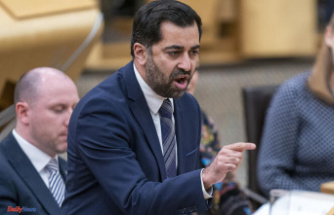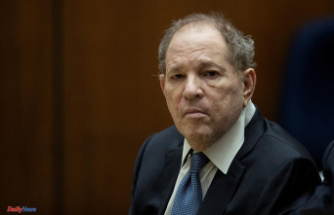Pedro Almodóvar lets hear. Cannes, the Tyrante lover, denies the golden palm, but invites you to deliver it to Jodie Foster. It happened just two months ago. And while, Venice, the faithful lover and something sobilly, takes his particular and unusual ritual of courtship to beyond the prudent: in 2019 he honored him with a golden lion to her entire career; Last year he presented his first film in English, the short film the human voice, and, now, grants the privilege of the inauguration. Or maybe he is Almodóvar who is granted to Venice. What do they suffer? Recall that it was in Venice where he presented between darkness on the first international trip of him and that, right here, women on the verge of a nervous attack consecrated as a world phenomenon.
Parallel mothers, his new film, he has burst into the Lido as an exhalation. Not so much because of its speed, as well as by Fulgor. Ovation after ovation. At two o'clock has come to a press room with exhausted entrances (by the pandemic you have to queue online to find site) and there he spoke of the new imperfect mothers who now populate their cinema in front of the Almighty Enea chair matriars who made it before. Of that and, above all, it was extended over historical memory.
Faced with the international press, the director made it clear that he considers the historical memory "The great pending issue" of Spain for act being convinced that "Spanish society has a huge moral debt with the families of the disappeared."
Remember Almodóvar that when he began to return to the story of the film, little about the subject was spoken. He also recalls that the 2007 law was defective because it lacks budget. And, the most important thing, he remembers that 85 years have passed and, he says, we continue at the same point. And he insists: "Until that debt is paid with the families of the disappeared, we can not close our recent history."
To situate, the film tells the story of two mothers, Janis (Penelope Cruz) and Ana (Milena Smit), both and two with daughters. One in quarantine, the other hardly adolescent. The first is binding of disappeared and has each of the absences of it very present. She grew up with her grandmother and with the memory that she had of her father just before being killed. The second, on the other hand, is the daughter of functional amnesons. Nothing of the past, even if it is that past that conditions the present of it and, by age, the future of it. From here, Almodóvar makes up an emotional trip that is also political. Can it be separated from each other? We had not already stayed in that the staff is social? And so.
"The funny", says Almodóvar the full forum, "is that it is the generation of grandchildren and the great-grandchildren who now ask for the exhumation, that was something that surprised even the rapporteurs of the UN that studied the case. They did not understand That they were precisely those born in democracy those who will ask for the fate of their ancestors. " And here he stops a moment. And follow: "That was because during the dictatorship he had a pathological fear that prevented him from talking. In my house, for example, he never spoke of war."
It does not stop being relevant that the director who has gone through the most preclare of the drivers and even emblem of the playful and festive fever of the move and the transition to it due (or vice versa) is now his critic more mate: " It would have been desirable that in 1978 the problem had been raised, but it was not like that. And that made everything that happened, including Amnesty itself. He condemned the disappeared to the no existence, which is, after all, The same as Franco did. "
Actually, historical memory is more the knot of the press conference than from the film itself. Or, better, it becomes the center of 'parallel mothers' from the skin and the excitement of its characters that are debated against the pains of their own memory. And it is in this careful strategy that goes from the private to the public, from intimacy to the great headlines where it becomes great, acquires volume and, finally (because of its clarity and courage), subjuga.
And what will happen with the most likely controversial? For Aitana Sánchez-Gijón, who plays the mother, actress and always imperfect mother of Ana, it is very important that this matter comes out of the boundaries of Spain. "Whenever this is told, it's surprising a lot and, therefore, the movie is important," she says.
From the entrance, the tape opens with an explicit mention to the former president of Government Mariano Rajoy, the last and most surprising boy Almodóvar. "What Rajoy said about historical memory was the height of clumsiness and a superlative insult," says the director to illustrate the statement he confessed and even boasted that the law approved in Zapatero's time had zero resources in the his. "The cinema survives us all and at least this will always be Rajoy linked to this infamy," he adds.
And what will happen with the most likely controversial? "The current oltamontana right reacts to everything, but I will not overtake me, I am aware that we live very treadmill in which certain politicians behave in such a vulgar and low way that we had never seen before." And there, at the moment, she leaves it.
Date Of Update: 04 September 2021, 15:12











